Australia has quietly become a ‘food superpower’ says billionaire Anthony Pratt
Australia has quietly become a ‘food superpower’ with 1200 factories popping up over the past decade and exports more than doubling, billionaire Anthony Pratt tells the Global Food Forum.

The technology industry captures the headlines, but Australia has quietly become a “food superpower” over the past decade, as local farmers have increased their output by more than 90 per cent, according to billionaire paper, packaging and recycling magnate Anthony Pratt.
The Australian food production industry now represents 6 per cent of Australia’s gross domestic product (GDP).

Over the past 10 years, 1200 food factories have been built across the nation and food exports have more than doubled from $29bn to $59bn.
Notably, beef exports to China over the period have grown by 200 per cent.
“So while tech gets all the love, food provides the jobs. In fact, since we first met in Melbourne over a decade ago, Australia’s farmers have produced 91 per cent more output,” Mr Pratt told The Australian and Visy Group’s 12th annual Global Food Forum which is, for the first time, being held in Brisbane.
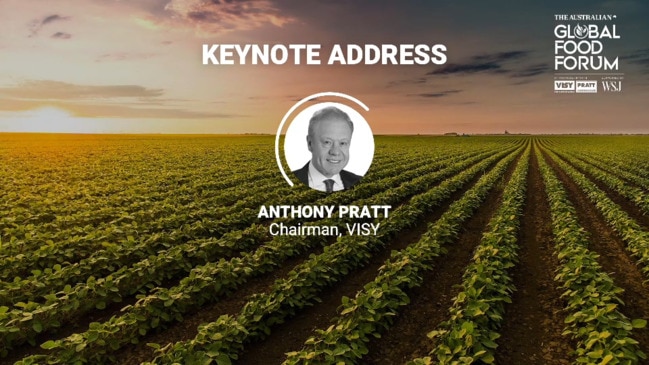
“That has gone to food and beverage manufacturing, which has grown by 56 per cent. That’s more than twice the growth rate of all other manufacturing over the same period.
“In fact, more than one in four Australian manufacturing jobs are in food and beverage manufacturing – and food is by far the largest manufacturing sector in our economy.”
Australia has secured 11 new free-trade agreements (FTA) in recent years, including the landmark Australia-India FTA that came into effect in December 2022.
It now has 18 FTAs in place, which has helped diversify the nation’s food exports at a critical time.
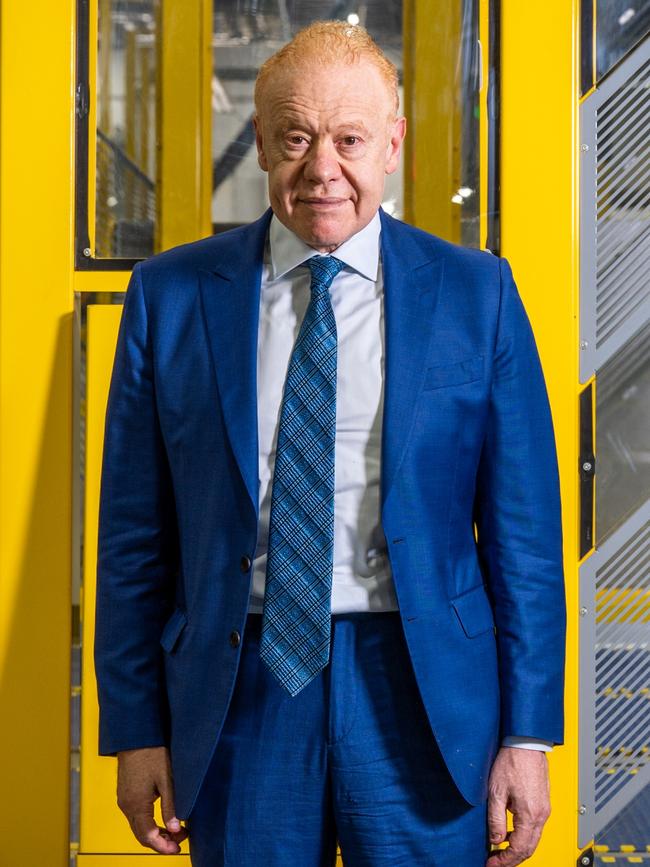
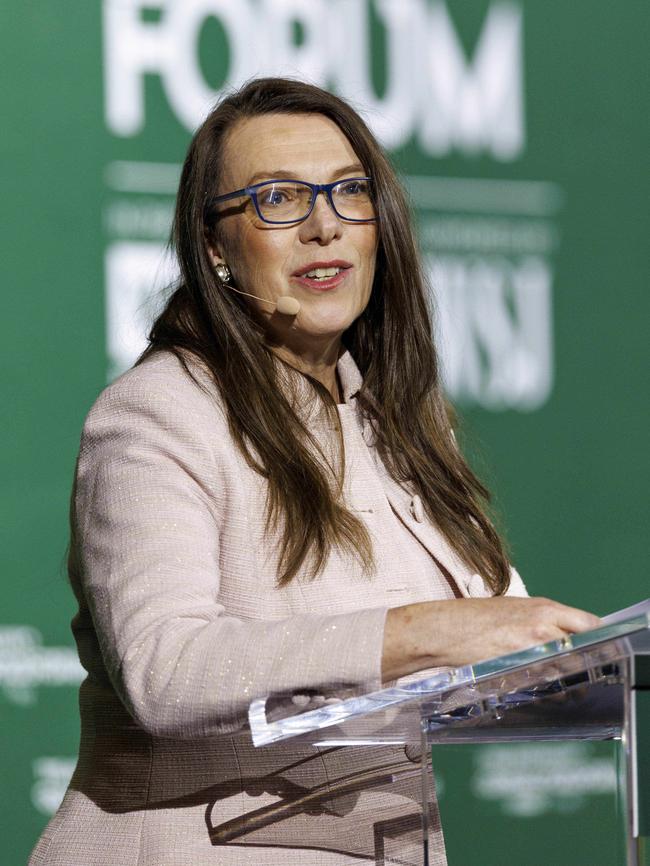
Specifically, the UK-Australia FTA has given Australian food exporters more access to the UK market than when Britain joined the Common Market.
“The brand new Australia-UK FTA has already yielded a 400 per cent increase in our beef exports to Britain and so far this year 70,000 tonnes of quality Aussie beef has already been shipped to the United States,” Mr Pratt told the forum.
“Australian barley exports to ASEAN countries have tripled in the past three years and Australian lobster exports to ASEAN have quadrupled.
“Some $300m worth of our premium wine is now also being sold to ASEAN countries for triple the price we would get in the American market.”
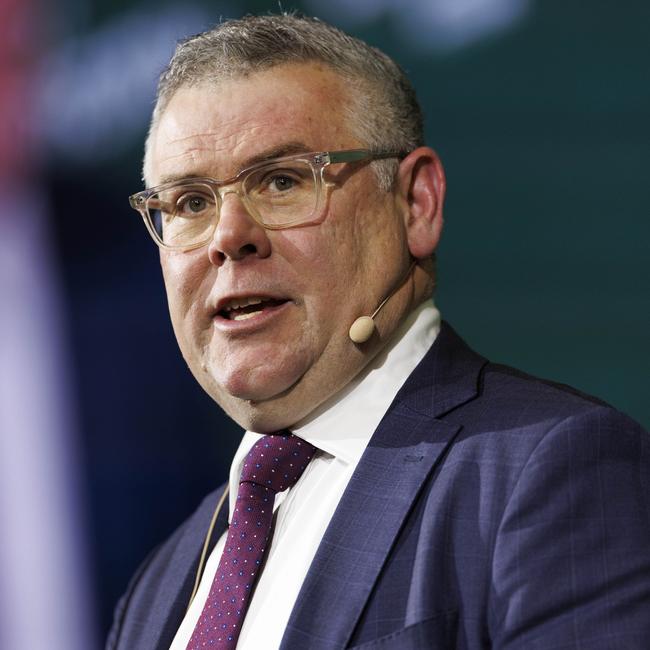
Established in Melbourne in 1948, the Pratt family’s Visy Group today employs more than 10,000 people across its Australian and US operations, where it is known as Pratt Industries USA. Seventy per cent of its customers are in the food and beverage sector.
Visy is currently investing more than $2bn to transform recycling and manufacturing in Australia, half of which is being spent on new facilities and upgrades of existing infrastructure to increase the recycled content of glass bottles from 30 per cent to 70 per cent.
Visy is building a $500m glass recycling and remanufacturing factory at Stapylton, south of Brisbane, that will recycle up to 200,000 tonnes of glass annually to produce one billion bottles a year. It represents the largest single investment the company has ever made.
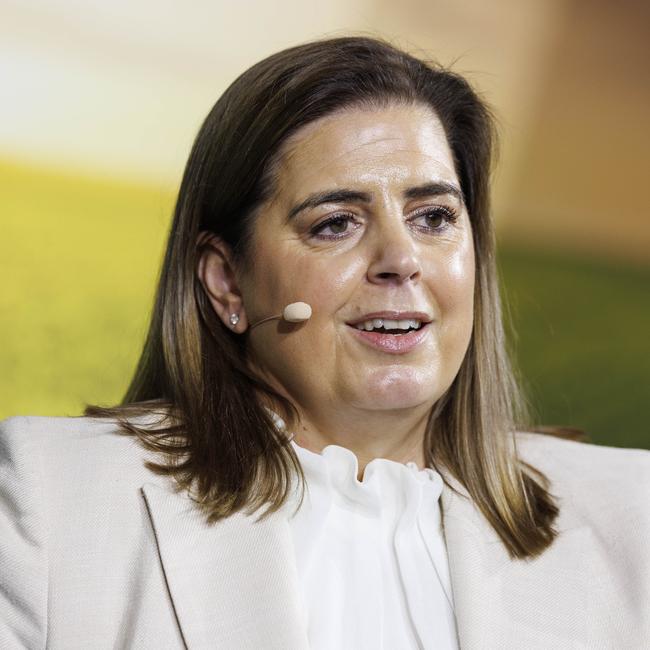
The project is expected to be operational in 2025 and is underpinned by a long-term partnership with Asahi Beverages, and agreements with Lion Group, Bundaberg Brewed Drinks and Coca Cola Amatil.
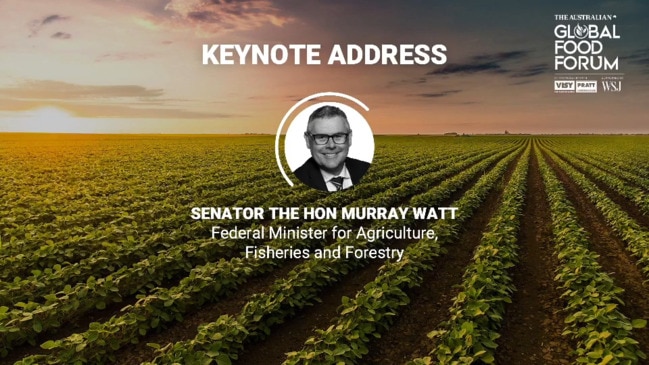
Visy is also investing in a state-of-the-art cullet plant at Laverton in Melbourne’s west.
The current cullet plant on the site operates by sorting glass 10mm or larger.
Once the upgrade is complete, using 20 optical sorters, the facility will be able to sort glass down to 3mm, boosting recycling and diverting more glass from landfill.
Visy became a dominant player in the beer bottle manufacturing industry in Australia after clinching a $1bn deal to acquire the local glass bottle manufacturing business of US glass giant Owens-Illinois in 2020 – the largest acquisition Mr Pratt has made.
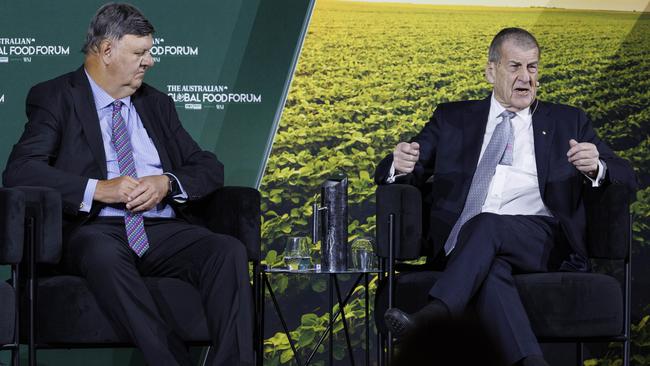
“Australia is a food superpower and Visy is proud to be a part of the food chain as Australia’s largest supplier of food and beverage packaging,” Mr Pratt said.
“From Tasmania to Tully in North Queensland, from Perth in Western Australia to Penrith in NSW, we are providing 7000 green collar jobs.”
In 2022, Visy also completed a $29m multistate investment to divert away up to 38,000 tonnes of plastics which otherwise would end up in landfill.
“We are in the landfill avoidance business, and because landfills are the third biggest emitter of methane, recycling is an important weapon against climate change. In fact, if food waste was a country it would be the third largest emitter of greenhouse gases; because food waste is the most toxic, methane-producing component of landfills,” Mr Pratt will tell the forum.
“Because 30 per cent of all food is wasted, it is a tremendous opportunity to reduce hunger as well.
“In fact, eliminating food waste could be the single most effective way to end world hunger.
“So it is gratifying that over the past 12 years of the Global Food Forum, our leading food companies and retailers have made great strides at reducing food waste in their own supply chains.”





To join the conversation, please log in. Don't have an account? Register
Join the conversation, you are commenting as Logout